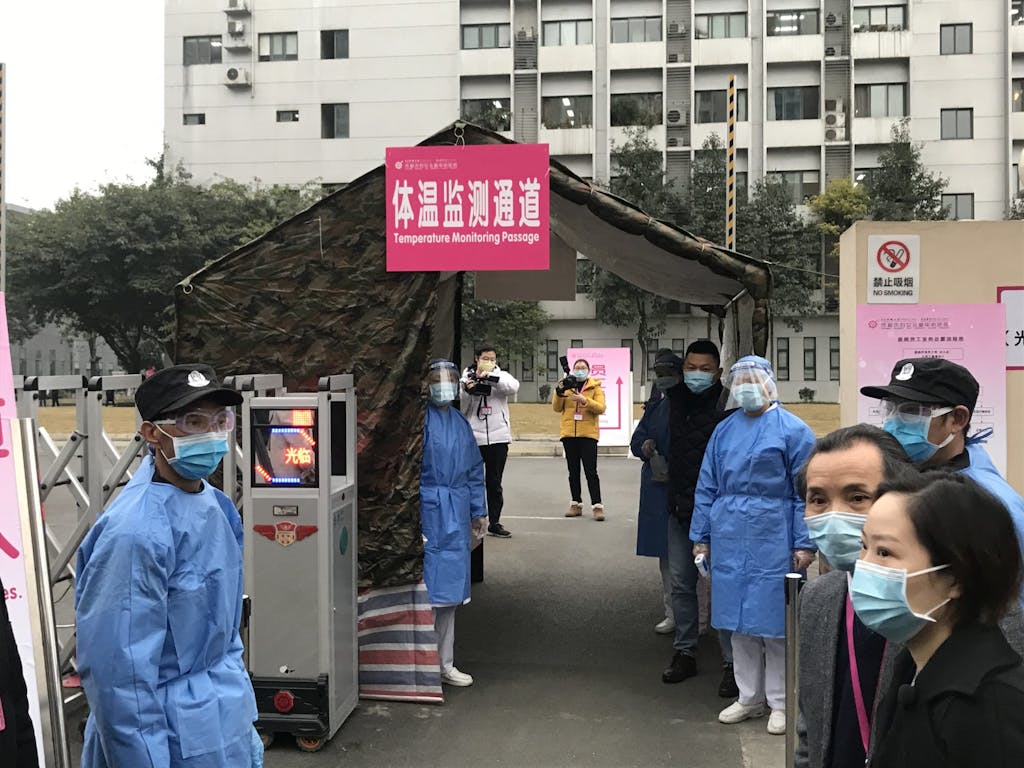COVID-19’s dangerously rapid spread around the globe makes painfully clear the interconnected nature of humanity’s health, which is critical to peace and prosperity. But Health for All demands major new approaches to private sector investment.
Less than one year ago, nations around the globe came together to adopt a historic high-level political declaration: The landmark document affirmed the right of citizens to access essential healthcare without suffering financial hardship. The Universal Health Coverage (UHC) declaration aims to move the world closer to the Sustainable Development Goals (SDGs)—which envision a healthy future for everyone, everywhere—through stronger health systems and high-impact health interventions for women and children. This work bolsters the World Health Organization’s efforts to ensure that 1 billion people have affordable health coverage by 2023.

World leaders lauded the move, emphasizing health’s central role in human progress and prosperity. Yet the World Bank estimates an additional $176 billion annually is needed to make UHC a reality in the world’s poorest countries. Resources are needed to hire and train health workers, expand insurance, advance digital health care delivery, and improve the quality of care. The stark fiscal reality is that current health spending has been largely directed to the COVID-19 pandemic response and the world economy is sliding into recession.
The clock is ticking on the United Nations-led accelerated Decade of Action to realize the SDGs by 2030. Government continues to bear primary responsibility for connecting people with affordable, quality healthcare. Yet many health expenditures are inefficient and a profound public sector healthcare funding gap persists. The added challenge of this aggressive timeline requires renewed urgency to mobilize capital at scale. As a result, creative health finance models are vital.
Pfizer, in partnership with the Global Development Incubator at USAID, has been leading conversations among healthcare financing experts to design and launch a multi-stakeholder initiative to meet these needs. This research-driven process has revealed that impact investors have a unique opportunity to use blended finance tools to fund healthcare innovation while reducing risk.
“De-risking health sector investment is a very important part of getting the innovator community, the private capital community, and the international policy community and governments together,” said H.E. Dr. Satyendra Prasad, Ambassador and Permanent Representative, Permanent Mission of Fiji to the United Nations, during a recent meeting convened by Pfizer and the Business Council for the UN (BCUN). The high-level conversation brought together dozens of health financing experts to explore new ways of making UHC a reality.
This gathering also highlighted how catalytic funding for health is growing more slowly than the rest of the market, underscoring the need to sustainably scale up private healthcare investment. To accomplish this, the health sector needs more funding, innovation, and market access. Indeed, many business models most likely to achieve UHC, such as expanding primary care coverage, have the fewest financing options.

A seminal report from partners at USAID outlined the need for a technical assistance facility to unite like-minded innovators and investors to advance new finance for health. There are a multitude of pioneering health enterprises, but fewer viable global health investors: “How do we help innovators in the growth stage versus the maturity stage?” asked Amy Lin, Acting Director, USAID Center for Innovation and Impact, during the recent financing discussion. Innovators at all stages of development must be matched to the right investors to minimize financial risk.
Such a health-focused technical assistance facility would meet a number of needs:
- Partner with existing small business incubators to support companies in their initial stages of growth.
- Provide innovators expert guidance as they navigate the challenges of creating a business. Entrepreneurs can share resources and information.
- Smooth complex relationships and regulatory requirements when working with governments.
- Help entrepreneurs launch successful business models in new markets.
A collaborative process will align investor and innovator priorities by aggregating fragmented capital sources into larger, pooled-risk funds in conjunction with technical health expertise. Fostering networks of local technical experts can also serve to “decolonize” healthcare funding by ensuring that innovators remain close to the patients they are serving.
Pfizer, as part of a stated commitment to achieving the SDGs and Universal Health Coverage, has galvanized interest, knowledge, resources, and momentum around this challenge. Now, Pfizer and partners are working to incorporate key players’ input to move toward launch. “By helping innovative financing initiatives achieve scale, we benefit through the success of innovators and small and mid-sized enterprises that we see as vital to achieving our purpose of delivering breakthroughs that change patients’ lives,” said Chris Gray, Pfizer Senior Director, Global Health & Patient Access.
Dr. Prasad is hopeful about the prospects of realizing Health for All: “How do we finance the response to a health crisis which has become a human crisis?” he said. “The world has faced bigger problems than this, truly we have all the pieces of the puzzle that can be put together.”



 View All Blog Posts
View All Blog Posts


